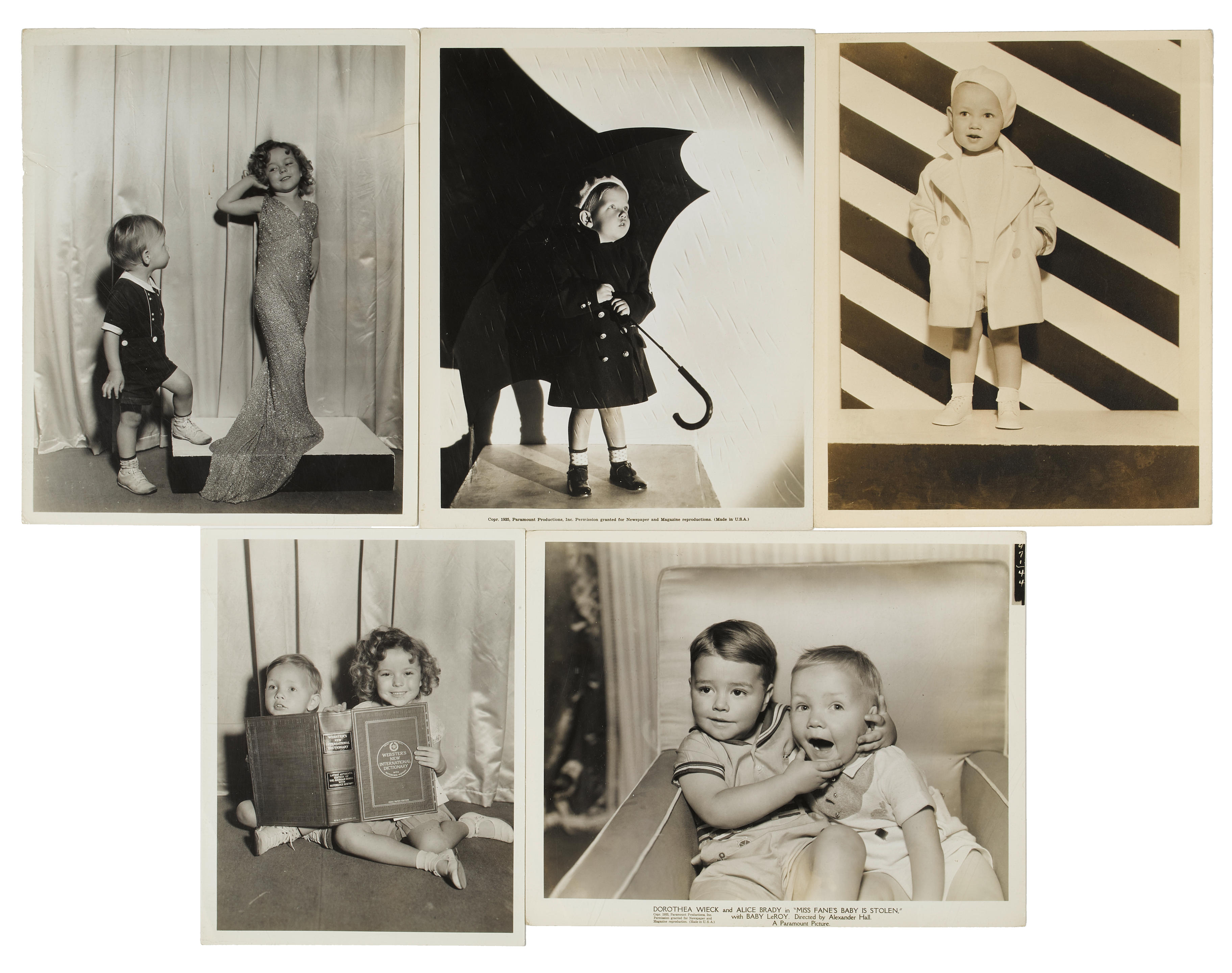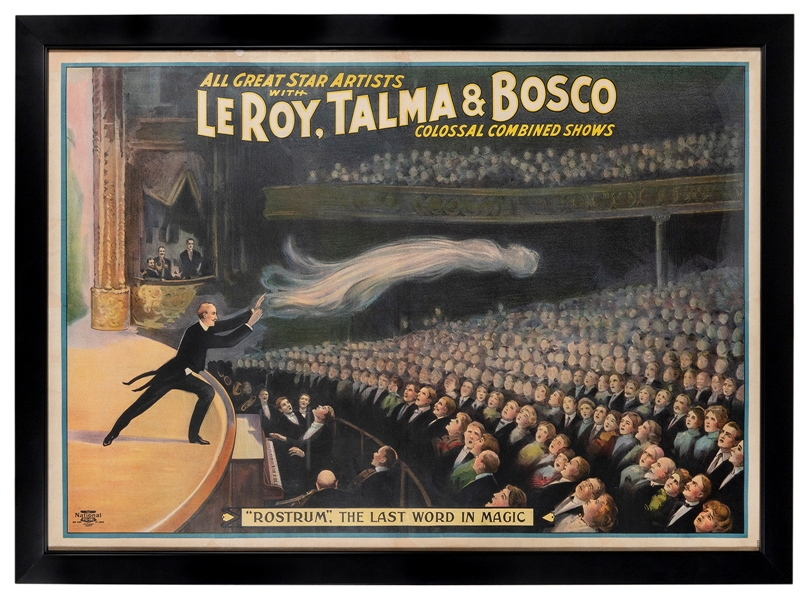Leroy
Manufacturer: Leroy Year: 1925 Movement No: Movement stamped N°1 Material: 18K yellow gold Calibre: Automatic, cal. 17 3/4"", 18 jewels Dimensions: 51mm. Diameter Signed: Movement and dial signed. Case stamped with the L.Leroy logo Accessories: Accompanied by original fitted box, original paperwork and setting pin Literature: This timepiece is described in "L'Histoire de la Montre Automatique" 1770-193 by A. Chapuis and E. Gelis p. 220-223. Catalogue Essay Paris, in the early 1920s. A distinguished and elegant gentleman enters the L. Leroy boutique on Place de la Madeleine with an intriguing request: Leroy is to create seven bespoke timepieces for seven collectors, members of an extremely closed club. These watches needed to have the same complications or features but each seven needed to be different and unique. Each year, Leroy was to create seven timepieces for this club in seven unique versions and never offer something similar to others. Budget was of no importance and artistic liberty a prerequisite. Furthermore, the oscillating weight was to bear numbers 1 to 7, the name of the owner and year of production. The present watch was made in 1925 for Rodolphe Darblay and bears the number 1.The other members of this exclusive club were Robert Darblay (Rodolphe’s brother, together, proprietors of paper works in Essonnes, the number one paper factory in France at the time), Count Humbert de Liedekerke-Beaufort and his son Hadelin, the French branch of one of Belgium's oldest noble families, as well as Counts Emmanuel de La Rochefoucauld and Frédéric de Mérode. The identity of the seventh member remains a mystery to this day. The present lot is enticing, seductive and bedazzling in more ways than one. The month, date and day indications are displayed on a semi arc on the top part of the dial whereas hours and minutes are indicated via an offset subdial, the whole lavishly hand guilloché. The thin elegant case is similar to the style popular in Paris from 1810 to 1825 with flat center piece and fixed bow. One notable feature is the “perpetuelle” winding system with an oscillating weight. According to Leroy 30 minutes of daily walk were sufficient to wind the watch for 30 hours. Interestingly, there is no crown to wind or set the watch manually. However, it can be wound and set via two small openings concealed by a small gold hinge on the case flank at 6 o’clock with the letters R (Remontoire – winding) and A (Aiguilles – hands). Louis Leroy was born in 1860 and considered by many as the equivalent of Breguet in terms of aesthetic and technical innovations. In 1900 he created the Leroy 01, the most complicated watch ever made with an astounding 24 complications on two dials, other than the chiming complications such as minute repeater, grande and petite sonnerie the Leroy 01 also indicated time in 125 cities, seasons, the winter and summer solstice, spring and autumn equinox a perpetual calendar a hygrometer, a barometer and even an altimeter. The Leroy 01 also had 3 interchangeable celestial charts representing the sky over Paris, Lisbon and Rio de Janeiro. The Leroy 01 remained the world’s most complicated timepiece until 1989 and Patek Philippe’s caliber 89. Louis Leroy can also be attributed the invention of a special anti-magnetic system to house a watch movement and to be used by polar explorers, an instrument capable of sending telegraphic timing signals and he can even be considered as the father of modern chronometry with his invention of constant pressure clocks that were placed under a glass cover and immune to the change in atmospheric conditions. This invention was the beginning of a long lasting collaboration between Leroy and the most prestigious observatories in the world. In superb condition, the present lot is the brainchild of a genius watchmaker and exudes a calm air of luxury and old world charm sure to impress even the most blasé collector. Read More
Leroy
Manufacturer: Leroy Year: 1925 Movement No: Movement stamped N°1 Material: 18K yellow gold Calibre: Automatic, cal. 17 3/4"", 18 jewels Dimensions: 51mm. Diameter Signed: Movement and dial signed. Case stamped with the L.Leroy logo Accessories: Accompanied by original fitted box, original paperwork and setting pin Literature: This timepiece is described in "L'Histoire de la Montre Automatique" 1770-193 by A. Chapuis and E. Gelis p. 220-223. Catalogue Essay Paris, in the early 1920s. A distinguished and elegant gentleman enters the L. Leroy boutique on Place de la Madeleine with an intriguing request: Leroy is to create seven bespoke timepieces for seven collectors, members of an extremely closed club. These watches needed to have the same complications or features but each seven needed to be different and unique. Each year, Leroy was to create seven timepieces for this club in seven unique versions and never offer something similar to others. Budget was of no importance and artistic liberty a prerequisite. Furthermore, the oscillating weight was to bear numbers 1 to 7, the name of the owner and year of production. The present watch was made in 1925 for Rodolphe Darblay and bears the number 1.The other members of this exclusive club were Robert Darblay (Rodolphe’s brother, together, proprietors of paper works in Essonnes, the number one paper factory in France at the time), Count Humbert de Liedekerke-Beaufort and his son Hadelin, the French branch of one of Belgium's oldest noble families, as well as Counts Emmanuel de La Rochefoucauld and Frédéric de Mérode. The identity of the seventh member remains a mystery to this day. The present lot is enticing, seductive and bedazzling in more ways than one. The month, date and day indications are displayed on a semi arc on the top part of the dial whereas hours and minutes are indicated via an offset subdial, the whole lavishly hand guilloché. The thin elegant case is similar to the style popular in Paris from 1810 to 1825 with flat center piece and fixed bow. One notable feature is the “perpetuelle” winding system with an oscillating weight. According to Leroy 30 minutes of daily walk were sufficient to wind the watch for 30 hours. Interestingly, there is no crown to wind or set the watch manually. However, it can be wound and set via two small openings concealed by a small gold hinge on the case flank at 6 o’clock with the letters R (Remontoire – winding) and A (Aiguilles – hands). Louis Leroy was born in 1860 and considered by many as the equivalent of Breguet in terms of aesthetic and technical innovations. In 1900 he created the Leroy 01, the most complicated watch ever made with an astounding 24 complications on two dials, other than the chiming complications such as minute repeater, grande and petite sonnerie the Leroy 01 also indicated time in 125 cities, seasons, the winter and summer solstice, spring and autumn equinox a perpetual calendar a hygrometer, a barometer and even an altimeter. The Leroy 01 also had 3 interchangeable celestial charts representing the sky over Paris, Lisbon and Rio de Janeiro. The Leroy 01 remained the world’s most complicated timepiece until 1989 and Patek Philippe’s caliber 89. Louis Leroy can also be attributed the invention of a special anti-magnetic system to house a watch movement and to be used by polar explorers, an instrument capable of sending telegraphic timing signals and he can even be considered as the father of modern chronometry with his invention of constant pressure clocks that were placed under a glass cover and immune to the change in atmospheric conditions. This invention was the beginning of a long lasting collaboration between Leroy and the most prestigious observatories in the world. In superb condition, the present lot is the brainchild of a genius watchmaker and exudes a calm air of luxury and old world charm sure to impress even the most blasé collector. Read More















Try LotSearch and its premium features for 7 days - without any costs!
Be notified automatically about new items in upcoming auctions.
Create an alert